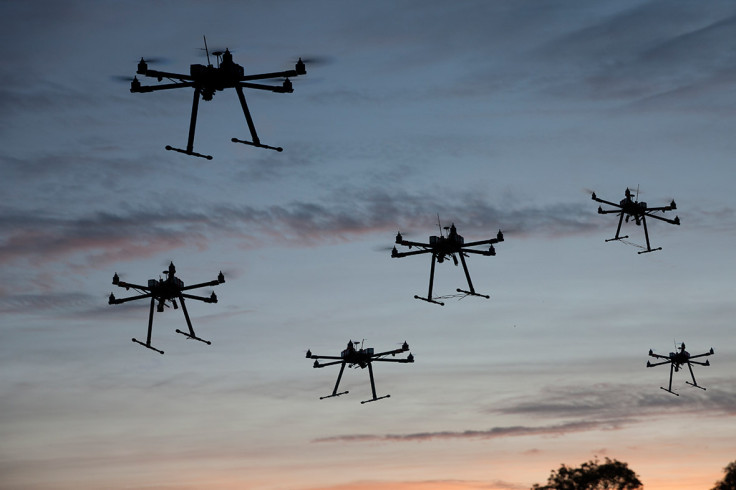Civil Aviation Authority admits UK drone regulations are out of date

The Civil Aviation Authority (CAA) admits its drone regulations are out of date governing the use of drones in the UK, following feedback from drone operators and members of the public.
Published back in 2008, the regulations were written when commercial and consumer drones were still very much in the early stages of development, but with the explosion of interest in recent years, the rules put in place seven years ago are now very dated.
"The whole thing has been troubling me for the last six to nine months. We've got to readjust it and we've been discussing it but we haven't come to a formal conclusion yet," Gerry Corbett, directorate of Airspace Policy at CAA told IBTimes UK at the SkyTech 2015 drone trade show in London.
The CAA is the statutory corporation which oversees and regulates all aspects of civil aviation in the United Kingdom.
Corbett added: "If we create exemptions, that can be done fairly quickly, but if we go to change the law, that will take one to two years. And of course the concern is that around that time, European legislation may well overtake and trump us as well. So our push at the moment is to make sure we can influence European legislation to make sure they don't do something we don't want them to do."
On 5 March, the House of Lords EU Committee released its proposed rules for the use of unmanned aerial vehicles (UAVs) which said that drones weighing less than 7.5kg can be flown for leisure purposes (or under 20kg for commercial purposes), but they cannot be flown less than 50m from people, buildings or airports, or flown out of sight of the drone operator.
Streamlining the drone permission process
Corbett said that the CAA plans to release revised regulations by the end of 2015, but he is not sure exactly how much will change.
"The feedback we're getting are very specific aspects. We try to make the rules as general as possible but there's always something at the peripheral that hasn't occurred yet that they ask about, or they want to do something very specific like fly in central London at a specific time and place, and they expect us to say it's easy, but it's not," he said.
"We try to keep rules simple but everybody tries to push us to over-complicating things and making them specific. We're talking about a 28-day permission process and [that would help] the applicant make sure they have all the appropriate manuals in place as well.
"I suppose we could streamline things in a few ways, for example deregulating things, but we have to have a good reason for why we're deregulating."
The issue is stressful to the CAA because UAVs are not the only thing that the body has to worry about, and Corbett said he is keen to get other government departments involved to do their part in legislation too like the Department of Transport.
Getting other bodies involved to police drone use
The police announced on 23 April that they will take responsibility for investigating the irresponsible or illegal use of drones from the CAA from now on, according to the BBC.
"What you wouldn't want is for us to concentrate on drones to the detriment of airline [safety]. We were the first ones to draft regulations in 2008, but now we've kind of become 'the drone guy', but it shouldn't just be down to us."
Nigel Willis of Aerial Photography Pros, who has been losing business to uninsured, unlicensed rogue drone operators, doesn't think the CAA has the capability to handle policing drone regulations by itself.
"I'm being told by those in the know that you're talking about four guys in an office in Gatwick, not a full team of administrators. I doubt they have the resources or want to chase after the bad guys," he told IBTimes UK.
"In the aviation industry, pilots call the CAA 'Cash Again and Again'. The CAA wants these unlicensed pilots as potential clients to get licensed with them and pay them money, so they won't get rid of them.
"I want the CAA to pursue this issue with energy and enthusiasm, to do something about getting these people out of the sky for the protection of the general public."
© Copyright IBTimes 2025. All rights reserved.






















